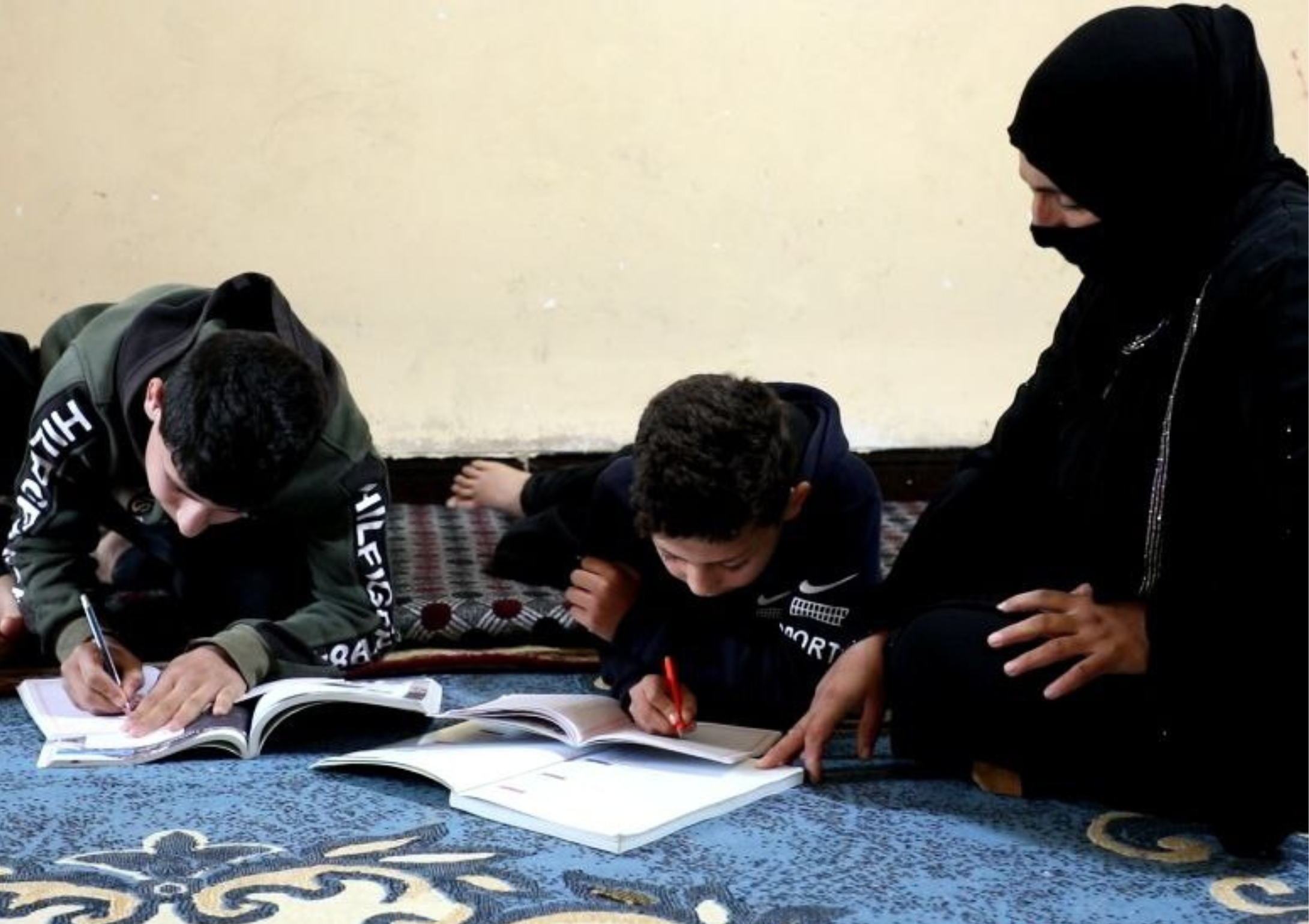Rebuilding Lives Beyond the Camps in Syria
Rebuilding Lives Beyond the Camps in Syria

Based on reflections by Lilla Schumicky-Logan, GCERF’s Deputy Executive Director and Head of Portfolio Management
One afternoon in the month of April 2025, I had lunch with three boys who were born eight years ago in the Al-Hol camp in Northeast Syria. Al-Hol camp is a dire and bleak place where thousands of family members of the Islamic State in Iraq and Syria (ISIS) fighters live. Their mothers come from Yathrib, the last town in Iraq to be overtaken by ISIS and the first town to be liberated.
The boys returned to Yathrib a year ago, only to find their homes destroyed, family lands seized, and their fathers either killed or imprisoned. But perhaps the most devastating loss is their legal identity. Without identity cards or official documentation, the boys do not exist in the eyes of the Iraqi state. They are invisible – unable to attend school, receive medical care, or access any basic services.
Despite their lack of identity cards, the major of Yathrib found a way to enroll the boys in school for the first semester. “I cannot tell you how happy I was when I could sit with other children and learn. I had hope. I felt our life will take a positive turn,” said Ali. “I felt like a normal child not a Daesh [ISIS] kid. The other children welcomed me. I want to study and be a doctor,’ added Hussein.
But for much of their lives, attending a school remained a distant dream. “If you only saw the camp, you cannot imagine that there is something else. That you can go to school every day and study. That you have teachers who care about you and food to eat. School is my new life,” Mohamed said passionately.
The new life Mohamed spoke of is slowly slipping away. After the holy month of Ramadan, the second semester starts, and these boys cannot return to school because they still do not possess identity cards. As the next generation of Iraqis, their hopes, dreams and trust are fading fast. Without identity and education, they remain vulnerable to the tactics of terrorist groups.
Over the last couple of years, significant progress has been made which cannot be lost. GCERF continues to work with the Iraqi government and civil society partners to create opportunities to children like these, who were born in the wrong place at the wrong time. We must continue returning, rehabilitating, and reintegrating the remaining 13,100 Iraqis from Al Hol camp. There is an urgent need to issue identity documents to all returnees. Mobile legal teams and government-subsidised rapid identity services are essential to maintainining trust in the system.
GCERF funded programmes are protecting the future generation of Iraq by offering hope and alternatives to thousands like Ali, Mohamed and Hussein. It is the children of today who will shape a future free from violent extremism and terrorism.
This story is based on reflections by Lilla, GCERF’s Deputy Executive Director and Head of Portfolio Management who met these children during a high-level visit to a reception centre in Balad.
